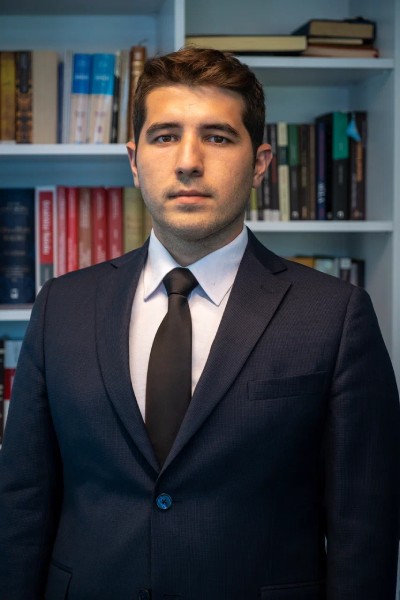
Creditors whose receivables are not paid on time by the debtor cannot collect their receivables by force. In this case, coercion (forced execution) against the debtor can only be made by the public authority and within the framework of the law.
Our clients are provided with transparent and reliable services by attorneys experienced in Enforcement and Bankruptcy Law by Usul Hukuk.
Lawsuits and Affairs concerning Enforcement and Bankruptcy Law:
Execution and bankruptcy proceedings for the collection of receivables,
Execution proceedings for the collection of receivables based on current account and invoice,
For the collection of receivables arising from finance, loan and leasing contracts, enforcement proceedings,
Actions for annulment of objection,
Negative clearance and restitution cases,
Bankruptcy and postponement of bankruptcy cases,
Debt objection and remuneration lawsuits,
Eviction cases,
Ecrimisil cases and cases against intervention,
Precautionary attachment lawsuits, provisional attachment objection lawsuits,
Lawsuits arising from lease agreements,
Converting the mortgage into cash
Mine foreclosure lawsuits,
Tender cancellation cases
Types of Enforcement Proceedings:
Prompt enforcement proceedings
Improper enforcement proceedings
Exchange tracking
pledge tracking
mortgage tracking
Rental tracking
Child delivery tracking
Alimony follow-up
Types of Foreclosure:
Final (Executive) Lien: It is the type of lien that authorizes the sale after the follow-up is finalized.
Temporary Seizure: It can be requested if the objection is temporarily lifted.
Additional Seizure: It can be demanded if the seized property does not cover the entire receivable.
Completion Seizure: It is made if the executive director values the seized property incorrectly.
Precautionary Lien: It is preferred when it is desired to secure the receivable.
The type of the debt and the legal relationship between the creditor-debtor
Accordingly, one of the above types of lien will be processed.
What is the Enforcement Criminal Court?
The special court, which is responsible for adjudicating the crimes defined between Articles 331 and 345 of the Enforcement and Bankruptcy Law and related to the enforcement law, is called the enforcement criminal court. Enforcement criminal courts are only in charge of dealing with cases related to enforcement and bankruptcy, as they are criminal courts under special laws. In this context, the cases that can be handled by the enforcement court are listed as follows;
The crime of reducing the debtor’s assets in order to harm his creditor
The crime of incapacitating or aggravating the debtor’s condition
The crime of obtaining special benefits in bankruptcy and concordat affairs
The crime of responsibility of the manager in the commercial enterprise
The crime of erring the authorized persons in restructuring by concordat or compromise.
Crimes committed by those who do not give the bankrupt’s property
crime of illegally abandoning trade
crime of making false statements
crime of breach of commitment
The crime of violating the child delivery order
The crime of re-entering the immovable or ship delivered by the enforcement office
The crime of not complying with the provisions of articles 30 and 31 of the enforcement bankruptcy law
The crime of non-payment of alimony or non-compliance with alimony decisions
crime of withdrawal
In order to be prosecuted in enforcement and bankruptcy cases, the enforcement criminal court seeks the condition of complaint. The person who will make the complaint must make the complaint within three months at the latest from the date of learning about the crime. If the act constituting a crime is learned later, the complaint must be filed within one year from the date of the crime.
What is Bankruptcy?
Anyone who operates a commercial enterprise, even partially, on his own behalf is called a merchant. The collective liquidation method, which ensures the payment of the receivables of all known creditors of a merchant by converting all the seized goods into money, is called legal bankruptcy. Bankruptcy only applies to traders. While no one can demand the execution for himself, the merchants can claim the bankruptcy for themselves. There are two reasons for bankruptcy under the law. The general reason is that the trader’s debt is due and he does not pay his debt.
The specific reasons for bankruptcy are as follows;
The capital company’s liabilities are more than its assets
The existence of the estate is not enough for its debt
In the follow-up made through foreclosure, half of the debtor’s assets are out of hand and the remaining assets are not sufficient to meet the debts that are due and will be due within a year.

Who We Are
Usul Hukuk is an independent law firm that provides the legal support needed by its clients in Turkey, USA, Europe, North Africa and Gulf countries with its lawyers specialized in all fields of law.
Usul Hukuk, which provides legal consultancy to Turkey’s most important industrial organizations and companies operating in international fields from many sectors, and updates itself in constantly changing fields in the world and in Turkey, provides services to its clients within an organized system with its lawyers and employees who specialize in different fields.
Global Team. World-class achievements.

Kaan Özçelik
FOUNDING LAWYER
He settled in Doğuş University Faculty of Law in 2011, graduated in 2015 and started to practice as a lawyer. Kaan Özçelik, who also continued his master’s degree in private law at Doğuş University, specializes in Capital Market Law, in particular the public offering of companies and their listing on the stock exchange. He also works on Commercial Law, Cryptocurrency Law, Mining Law, Urban Transformation Law, Rental Law and KYC (Know Your Costumer) procedures by actively consulting companies. He speaks English.

Adem Gökmen
LAWYER
He settled in the Department of International Relations at Istanbul Bilgi University in 2011, completed his education with a double major program at the Faculty of Law with the second place in the department, and started working as a lawyer in 2017. Specializing in Law of Obligations, Family Law, Execution and Bankruptcy Law, Banking and Finance Law, Adem Gökmen works on Fintech – Electronic Money Banking Law and KYC (Know Your Costumer) procedures. He speaks English.

Bilal Tarı
LAWYER
He settled in Doğuş University Faculty of Law in 2011, graduated in 2015 and started to practice as a lawyer. Bilal Tarı, who specializes in Commercial Law, Law of Obligations, and Family Law, works in the fields of Professional Athlete and Technical Team Contracts and Arbitration Law in the field of Sports Law.

Önder Meydan
LAWYER
He settled in Kocaeli University Faculty of Law as the second in 2011 and started to practice law after graduating in 2015. Önder Meydan also works in the field of Enforcement Law, which carries out litigation and business follow-up in many areas of law, including Criminal Law, Law of Obligations, Law of Persons, Enforcement and Bankruptcy Law.

Miray Kebabcı
LAWYER INTERN
He settled in the Faculty of Law of the European University of Lefke in 2017 and graduated in 2021. Miray Kebabcı continues her compulsory legal internship at Usul Law & Consultancy.

Şevval Demirezen
PSYCHOLOGICAL COUNSELOR
He settled in Maltepe University Psychological Counseling and Guidance Department in 2017 and completed his education in Psychology with a double major program. He serves as a psychological counselor.
We are happy to serve you
We are here to help answer your questions. Legal matters can be complex, our experts are ready to assist you in keeping you informed on anything related to your subject. We take great pride in using our expertise for you and look forward to hearing from you.
